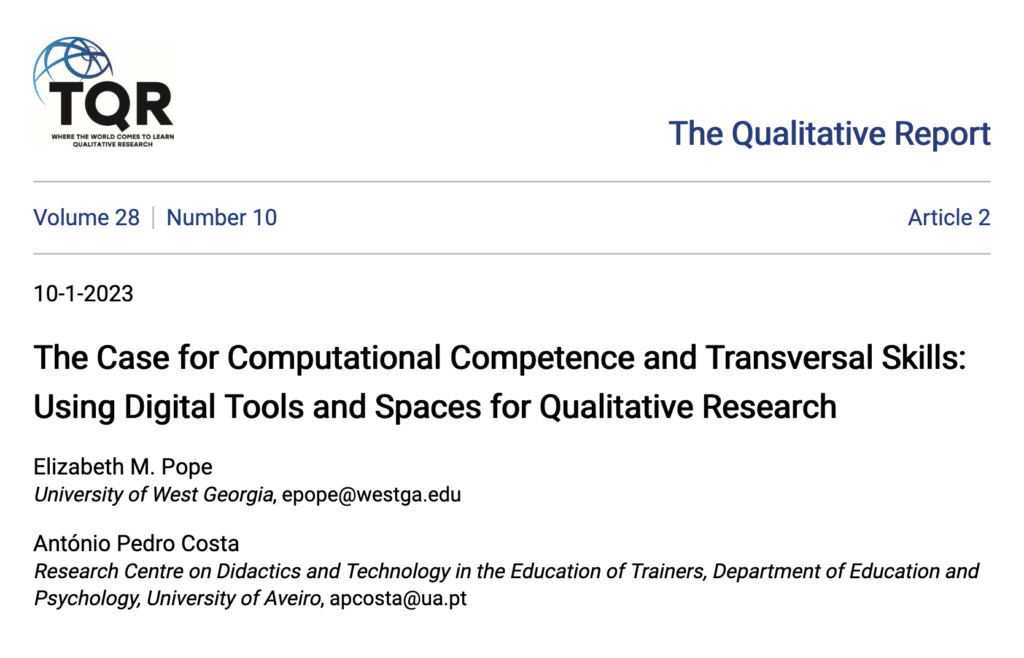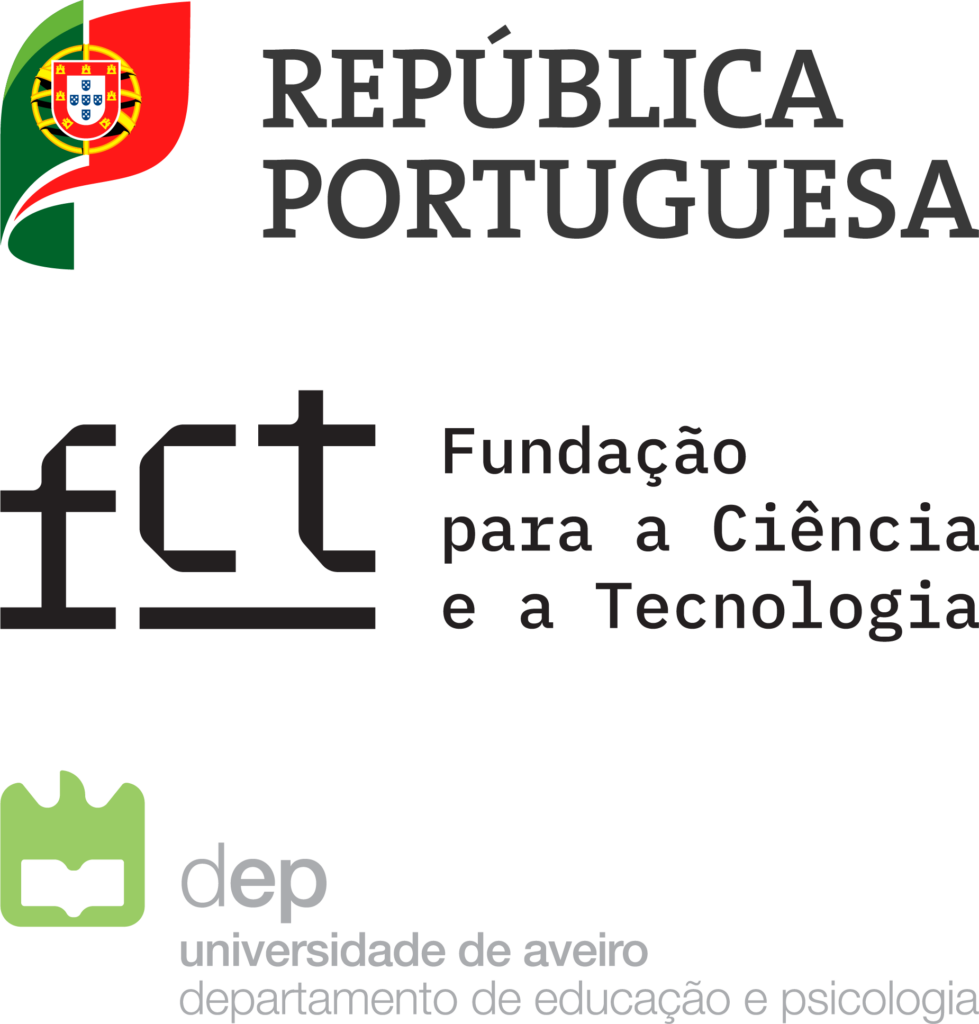Elizabeth M. Pope & António Pedro Costa (CIDTFF) | The Qualitative Report, 28(10), pp. 2838-2847
Abstract:
When digital tools or spaces are involved in the design and implementation of qualitative research projects, the researcher is faced with the need to develop another type of competence, computational. Digital tools and spaces are growing avenues which facilitate data collection and analysis in new ways, such as through online surveys, videoconferencing platforms, social media sites, and qualitative data analysis software (QDAS). To utilize these tools, researchers need both computational competence and transversal skills. These skills allow the researcher (or research team) to transfer their knowledge of designing and implementing qualitative research to the digital realm, assuring trustworthiness and ethical behavior in using a digital tool or space. This essay discusses these two dimensions and how appropriating computational competence and transversal skills through digital tools or spaces may lead to higher-quality research projects.
– – – – –
Referência:
Pope, E. M., & Costa, A. P. (2023). The Case for Computational Competence and Transversal Skills: Using Digital Tools and Spaces for Qualitative Research. The Qualitative Report, 28(10), 2838-2847. https://doi.org/10.46743/2160-3715/2023.6676





